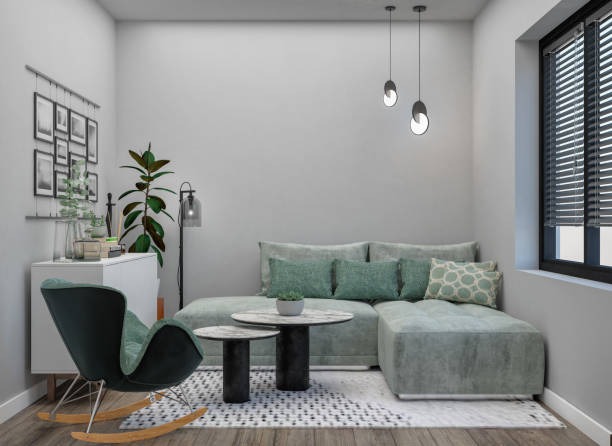Interior design is a dynamic and rewarding field that offers endless opportunities for creative expression. Whether you’re a budding designer looking to make a career out of your passion or someone looking to enhance their existing skills, choosing the right interior design course is crucial to achieving your career goals. In this blog, we’ll guide you through the essential factors to consider when selecting an interior design course that aligns with your aspirations and sets you on the path to success.

Define Your Career Goals
Before diving into the world of interior design courses, take some time to reflect on your career goals. What type of interior designer do you aspire to be? Do you want to specialize in residential or commercial design, sustainable design, or something else entirely? Understanding your long-term objectives will help you narrow down your course options and choose one that aligns with your ambitions.
Accreditation and Recognition
It’s crucial to choose an accredited interior design course from a reputable institution. Accreditation ensures that the program meets specific industry standards and provides you with a quality education. Research the accrediting bodies in your country or region to verify the legitimacy of the course. Additionally, consider the course’s reputation within the design community, as a well-recognized program can enhance your career prospects.
Course Curriculum
Examine the curriculum of the interior design course you’re interested in. Look for a program that covers a wide range of topics, including design principles, space planning, color theory, materials and finishes, and computer-aided design (CAD). Depending on your career goals, you may also want to find courses that offer specializations or elective modules in areas like sustainable design, hospitality design, or kitchen and bath design.
Faculty Expertise
The instructors and faculty members play a significant role in your education. Research the credentials and experience of the teaching staff. Professors with industry experience and connections can provide valuable insights and networking opportunities that can benefit your career. Don’t hesitate to reach out to current or former students to gather feedback about the faculty’s teaching style and accessibility.
Learning Format
Consider your preferred learning format. Interior design courses are available in various formats, including full-time, part-time, online, and in-person. Choose a format that fits your schedule and learning style. Keep in mind that online courses may offer more flexibility, but in-person programs can provide hands-on experience and networking opportunities.
Facilities and Resources
Inspect the facilities and resources available to students. A well-equipped design studio with access to the latest software and technology can enhance your learning experience. Additionally, libraries, material sample libraries, and workshops can be valuable resources for your design projects.
Internship and Job Placement Opportunities
An essential aspect of an interior design course is the practical experience it provides. Inquire about internship programs or job placement assistance offered by the institution. These opportunities can help you gain real-world experience and secure a job after graduation.
Alumni Success
Research the success stories of the school’s alumni. Graduates who have gone on to achieve success in the interior design industry can be a testament to the quality of the program. Look for alumni profiles, testimonials, or contact them directly to learn more about their experiences.
Conclusion
Choosing the right interior design course is a significant step toward achieving your career goals in the dynamic world of design. By defining your objectives, considering accreditation, assessing the curriculum, evaluating faculty expertise, and exploring learning formats and resources, you can make an informed decision. Remember that your education is an investment in your future, and selecting the right course is a crucial step towards a successful career in interior design.


FREQUENTLY ASKED QUESTIONS (FAQS)
What should I consider when choosing an interior design course?
When choosing an interior design course, consider factors such as your career goals, budget, location, accreditation, course content, faculty, and the reputation of the institution.
Should I pursue a degree or a diploma/certificate in interior design?
Your choice depends on your career goals and the level of education you want. A degree program (e.g., Bachelor’s) offers more comprehensive education and better job prospects, while a diploma or certificate may be suitable for specific skill development.
How do I know if an interior design program is accredited?
Check if the program is accredited by relevant organizations or accrediting bodies in your country. Accreditation ensures the program meets industry standards and enhances your credibility as a designer.
